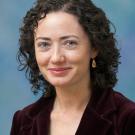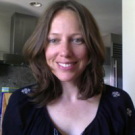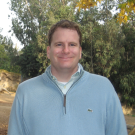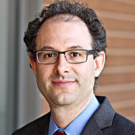Subfields and Faculty
Active Research Topics in the Department of Political Science
The study of American politics at Davis engages a broad range of questions central to understanding democratic processes, institutions and political behavior in the United States. Our faculty's recognized research expertise spans the study of national and local political institutions, political communication, public opinion, political psychology, political parties, elections and campaigns, race and ethnic politics, and public policy.
The work of our faculty is tied to the scientific study of American politics through rigorous quantitative and qualitative methods. Faculty members employ a diverse range of approaches in their research, including experimental, survey, text analysis and formal modeling methods. Students in the subfield are encouraged to develop their analytical and methodological skills, as well as a sophisticated understanding of the scholarly literature on political behavior and institutions.
Christopher Hare
- Associate Professor
Many of the core questions in political science can be addressed best within the broad approach known as comparative politics. Traditionally, scholarship within the American politics subfield maintained a number of advantages in studying the ways domestic politics operate because of the high quality of its data in areas such as public opinion, elite and electoral behavior, and political institutions. However, as the quality and quantity of data on other countries increased, scholars in comparative politics have been able to distill some of the most compelling answers to the core questions in the discipline.
The reason is simple: a comparative approach introduces cross-national and cross-cultural variation into our research designs, thus permitting us to draw more generalizable conclusions. For this reason, at UC Davis our view is that cross-national analysis offers substantial advantages over a more "area-studies" focus. Accordingly, although most of our faculty members possess detailed knowledge of various countries and regions of the world, we have built our comparative politics program around an explicitly comparative orientation.
When do nations go to war? What affects trade and immigration patterns? Which counter-terrorism strategies work? Is the enemy of my enemy truly my friend? How does war affect leaders, public opinion and elections? These are just some of the critical international politics questions that faculty scholars and students contemplate and research at UC Davis. Traditionally, international politics focused exclusively on the influence of the international system on the behavior of states. While arguments about the democratic peace theory have clearly challenged that approach, our perspective focuses on the intersection of domestic and international politics, examining international conflict, international cooperation and international political economy.
We employ numerous analytical approaches, including rational choice, network analysis, political psychology, and prospect theory. Faculty members frequently co-publish with graduate students, and also work closely with other subfields. Our research employs a variety of empirical methods, including statistical analyses, mathematical models, computational models, experiments and case studies. Our goal is to ask questions that have relevance for the global future, re-examine answers from the international relations past, and to examine them creatively and rigorously.
Within statistics, we offer a variety of courses on a wide range of topics, including linear models, duration modeling, causal inference, Bayesian statistics, scaling and measurement theory, time-series, models for categorical data, hierarchical modeling, and experimental design. Likewise, in formal theory we offer courses encompassing a range of areas, including game theory, social choice theory, formal and spatial modeling, and empirical testing of formal models.
Christopher Hare
- Associate Professor
In the political theory subfield at Davis, we take a broadly textual approach to the history of political thought, focusing on major political philosophers from the ancient, medieval, modern and contemporary eras. We provide our students with training in textual analysis that is also sensitive to the broader philosophical issues and historical contexts necessary for understanding these texts. While we offer courses across the entire range of the history of political thought, including seminars focusing on a single thinker or text, our program is particularly strong in the early modern era and in questions of law and ethics as they relate to political theory. The faculty and students in political theory form an unusually active and cohesive group. In addition to recurrently offered graduate seminars, a reading group in our department that meets regularly enables students and faculty to explore topics in political theory of common interest.
Shalini Satkunanandan
- Associate Professor





























